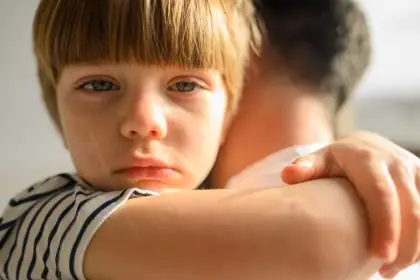It’s important to seek professional help if you or someone you know is experiencing these symptoms. A mental health professional can provide an accurate diagnosis and develop an appropriate treatment plan, which may include therapy, medication, or a combination of both.
Treatment
Treatment for Post-Traumatic Stress Disorder (PTSD) typically involves a combination of psychotherapy, medication, and supportive interventions. The specific approach to treatment can vary based on individual needs, preferences, and the severity of symptoms. It’s important for individuals with PTSD to work with a mental health professional to determine the most appropriate treatment plan. Here are some common treatment options for PTSD:
-
Psychotherapy (Talk Therapy)
- Cognitive Behavioral Therapy (CBT): CBT is one of the most widely used therapies for PTSD. It focuses on identifying and challenging negative thought patterns and behaviors related to the traumatic event. Exposure therapy, a type of CBT, helps individuals confront and gradually desensitize to the memories and situations that trigger their symptoms.
- Eye Movement Desensitization and Reprocessing (EMDR): EMDR is a specialized therapy that involves guided eye movements while recalling the traumatic event. This therapy aims to help individuals process traumatic memories and reduce the distress associated with them.
- Prolonged Exposure Therapy: This therapy involves systematically confronting and processing traumatic memories through repeated exposure to thoughts, feelings, and situations related to the trauma. It aims to reduce avoidance and emotional numbing.
-
Medication
- Antidepressants: Selective Serotonin Reuptake Inhibitors (SSRIs) and Serotonin-Norepinephrine Reuptake Inhibitors (SNRIs) are commonly prescribed to manage symptoms of depression and anxiety associated with PTSD. These medications can help regulate mood and reduce hyperarousal.
- Prazosin: This medication may be prescribed to alleviate nightmares and sleep disturbances that are common in PTSD.
-
Supportive Therapies
- Group Therapy: Participating in group therapy with others who have experienced trauma can provide a sense of community, validation, and shared coping strategies.
- Support Groups: These groups, led by a trained facilitator, offer a safe space for individuals to share their experiences and learn from others who have faced similar challenges.
-
Complementary and Alternative Therapies
- Mindfulness and Relaxation Techniques: Practices like meditation, deep breathing, and progressive muscle relaxation can help manage anxiety and stress.
- Yoga and Exercise: Physical activity can have positive effects on mood, stress reduction, and overall well-being.
- Art or Music Therapy: These creative therapies can provide nonverbal outlets for expressing and processing emotions related to the trauma.
-
Self-Care and Lifestyle Changes
- Developing healthy habits around sleep, nutrition, and exercise can contribute to overall mental well-being.
- Engaging in activities that bring joy and relaxation can counteract the emotional impact of PTSD symptoms.
It’s important to remember that recovery from PTSD is a gradual process, and treatment outcomes can vary. Patience, persistence, and a supportive environment are key factors in the healing process. If you or someone you know is experiencing symptoms of PTSD, seeking help from a mental health professional is crucial for receiving an accurate diagnosis and developing an effective treatment plan.
Tips For Coping
coping with Post-Traumatic Stress Disorder (PTSD) can be challenging, but there are several strategies that individuals can use to manage their symptoms and improve their quality of life. It’s important to remember that different strategies work for different people, so it’s worth trying out various approaches to find what works best for you. Here are some coping tips for PTSD:
- Seek Professional Help:
Working with a qualified mental health professional, such as a therapist or psychiatrist, is essential. They can provide you with proper diagnosis, treatment, and guidance tailored to your needs.
- Educate Yourself:
Learning about PTSD and understanding its symptoms, triggers, and effects can help you gain insight into your condition and normalize your experiences.
- Practice Self-Care:
- Prioritize your physical health through regular exercise, proper nutrition, and adequate sleep.
- Engage in relaxation techniques, deep breathing exercises, meditation, or progressive muscle relaxation to manage anxiety and stress.
- Create a Safety Plan:
- Develop a plan for managing moments of distress. Identify grounding techniques or activities that can help you stay present and manage anxiety when triggered.
- Reach Out for Support:
- Connect with friends, family members, or support groups who can offer understanding, compassion, and a listening ear.
- Consider sharing your experiences with trusted individuals, so they know how to support you during difficult times.
- Practice Mindfulness:
- Mindfulness involves staying in the present moment without judgment. Mindful practices can help reduce rumination about the past or worries about the future.
- Mindfulness meditation or yoga can be particularly helpful in managing PTSD symptoms.
- Journaling:
Writing about your experiences and feelings can help you process your thoughts and emotions. This can be a safe outlet to express yourself and track your progress over time.
- Limit Exposure to Triggers:
- While it’s important to face your triggers through therapy, it’s also crucial to know your limits. Gradually expose yourself to triggers in a controlled environment.
- Engage in Creative Outlets:
- Engaging in creative activities such as art, music, or writing can provide a positive and expressive way to channel your emotions.
- Practice Patience: Recovery takes time, and setbacks can happen. Be patient with yourself and acknowledge your progress, no matter how small.
Remember that coping strategies may need to be adapted based on your individual needs and circumstances. If you’re unsure about what strategies to use or if your symptoms are becoming overwhelming, it’s important to reach out to a mental health professional for guidance and support.
In conclusion, Post-Traumatic Stress Disorder (PTSD) is a complex mental health condition that stems from traumatic experiences, often leading to a wide range of distressing symptoms that impact daily life.
Whether triggered by personal experiences or witnessing traumatic events, the effects of PTSD can be deeply profound. The symptoms, categorized into intrusive thoughts, avoidance behaviors, negative mood changes, and heightened arousal, underscore the challenges faced by those living with this condition.
Recognizing the need for support and effective treatment, seeking professional help is a critical step in the journey toward recovery.
Psychotherapy, medication, and supportive therapies provide a comprehensive approach to managing PTSD, empowering individuals to regain control over their lives. Furthermore, the importance of self-care cannot be understated – from mindfulness practices to creative outlets, these coping strategies offer paths to healing and resilience.
As we acknowledge the complexity of PTSD and its impact, let us extend a heartfelt wish for improved mental health.
Through a combination of professional assistance, personal strategies, and the understanding of a supportive community, may those affected by PTSD find strength, solace, and a path toward renewed well-being.
FAQs
What is Post-Traumatic Stress Disorder (PTSD)?
PTSD is a mental health condition that can develop after experiencing or witnessing a traumatic event, such as violence, accidents, or natural disasters. It can lead to a range of distressing symptoms affecting thoughts, emotions, and behavior.
What kinds of events can trigger PTSD?
Traumatic events that involve actual or threatened death, serious injury, or sexual violence can trigger PTSD. These can include combat exposure, accidents, assaults, natural disasters, and acts of terrorism.
What are the main categories of PTSD symptoms?
PTSD symptoms are typically grouped into four categories: intrusive thoughts and memories, avoidance and numbing behaviors, negative changes in thoughts and mood, and arousal and reactivity. These symptoms can significantly impact daily life and relationships.
How long do PTSD symptoms last?
For a diagnosis of PTSD, the symptoms must persist for more than a month and cause significant distress or impairment. However, many individuals experience symptoms for much longer. Timely treatment can help manage and reduce symptoms.
What are the treatment options for PTSD?
Treatment for PTSD often involves a combination of psychotherapy, medication, and supportive therapies. Cognitive Behavioral Therapy (CBT), Eye Movement Desensitization and Reprocessing (EMDR), medication (such as antidepressants), and group therapy are common approaches.





